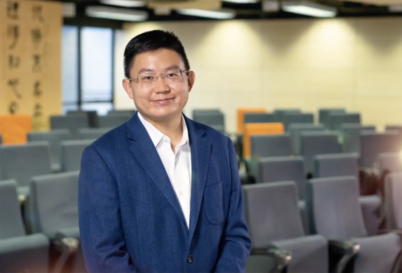Helping China’s War Against Pollution
Using data from air quality monitoring technology introduced in the country in 2013, coupled with his earlier research on the mortality impacts of the air pollution, Dr. He has found remarkable achievements in less than a decade, which would lead to substantial improvements in human health, productivity, and quality of life.
China announced a war on pollution in 2013 that gave priority to the environment after years of putting economic growth first. How successful has that war been? Research by Dr. Guojun He, Associate Professor at the HKU Business School, provides strong proof that it is benefiting not only the environment, but human health and social welfare. Moreover, he has also empowered citizens to monitor large polluting firms, thus further reducing pollution. His work saw him honoured with the HKU Knowledge Exchange Excellence Award this year.
Using data from air quality monitoring technology introduced in the country in 2013, coupled with his earlier research on the mortality impacts of the air pollution, Dr. He has found remarkable achievements in less than a decade, which would lead to substantial improvements in human health, productivity, and quality of life.
“China has reduced the level of PM2.5 [particulate matter with diameters that are generally 2.5 micrometers and smaller] on average by more than 40 percent and had even bigger reductions in sulfur dioxide and nitrogen oxide and dioxide. We estimate that if these improvements are sustained, the average Chinese citizen should be able to live an additional two years longer,” he said.
He also found that the more-accessible air quality readings had a positive effect on citizens’ self-protection – after the Chinese government introduced a nationwide air quality monitoring system and released the data to the public, there were immediate increases in sales of face masks and air filters on Taobao, especially during high-polluting days.
But demonstrating these results was not his only goal. He saw potential in using data to engage citizens in environmental governance.
Under the war on pollution, large polluting firms are required to have pollution monitoring equipment on their premises and the readings are accessible to regulators and the public. Dr. He decided to conduct a national experiment in 2020 to activate volunteers to monitor the emissions of more than 25,000 major polluters across the country. When pollution violations were detected, the volunteers were encouraged to file complaints to local regulators through hotlines, websites or on social media.
“The idea is that although the government already has this data, without public pressure local regulators may be reluctant to enforce tighter regulations because there is a cost in doing that. So basically, we give them a nudge,” he said.
The programme resulted in national firm emission violations plunging by 60 percent. Most importantly, national water pollution concentration levels fell by 12 percent and air pollution levels by about four percent. Compliance was especially strong when violations were reported on social media and the “like”, “share” and “comment” functions were enabled.
“These are significant improvements, suggesting that citizen participation can be a cost-effective way to make local regulators more accountable and make firms comply better with environmental standards,” he said.
Dr. He also achieved social impacts through the air pollution study he collaborated on with the University of Chicago (he is the research director of its UChicago’s Energy Policy Institute-China Centre) in 2017. They revealed that increases in PM2.5 substantially reduced life expectancy in northern China, where the centralized winter heating system burned large amounts of high-polluting coal. Based on their findings, the Air Quality Life Index was constructed, which provided estimates on the loss of life years for all the countries in the world.
“This study also contributed to the government’s decision to introduce a clean energy winter heating system that substitutes a coal-powered system for one using natural gas or electricity. Several years later, we see that northern China’s air quality levels significantly improved in winter, ” he said.
Dr He has disseminated his findings to policymakers, including the Ministry of the Environment and Ecology, and the general public, through domestic and international media coverage and through dozens of seminars, conferences and forums, including a 2022 webinar on China’s anti-pollution achievements that attracted more than 244,000 online participants. He also provides reports for organisations such as the Asia Development Bank on the costs and benefits of different options for reducing carbon emissions.



